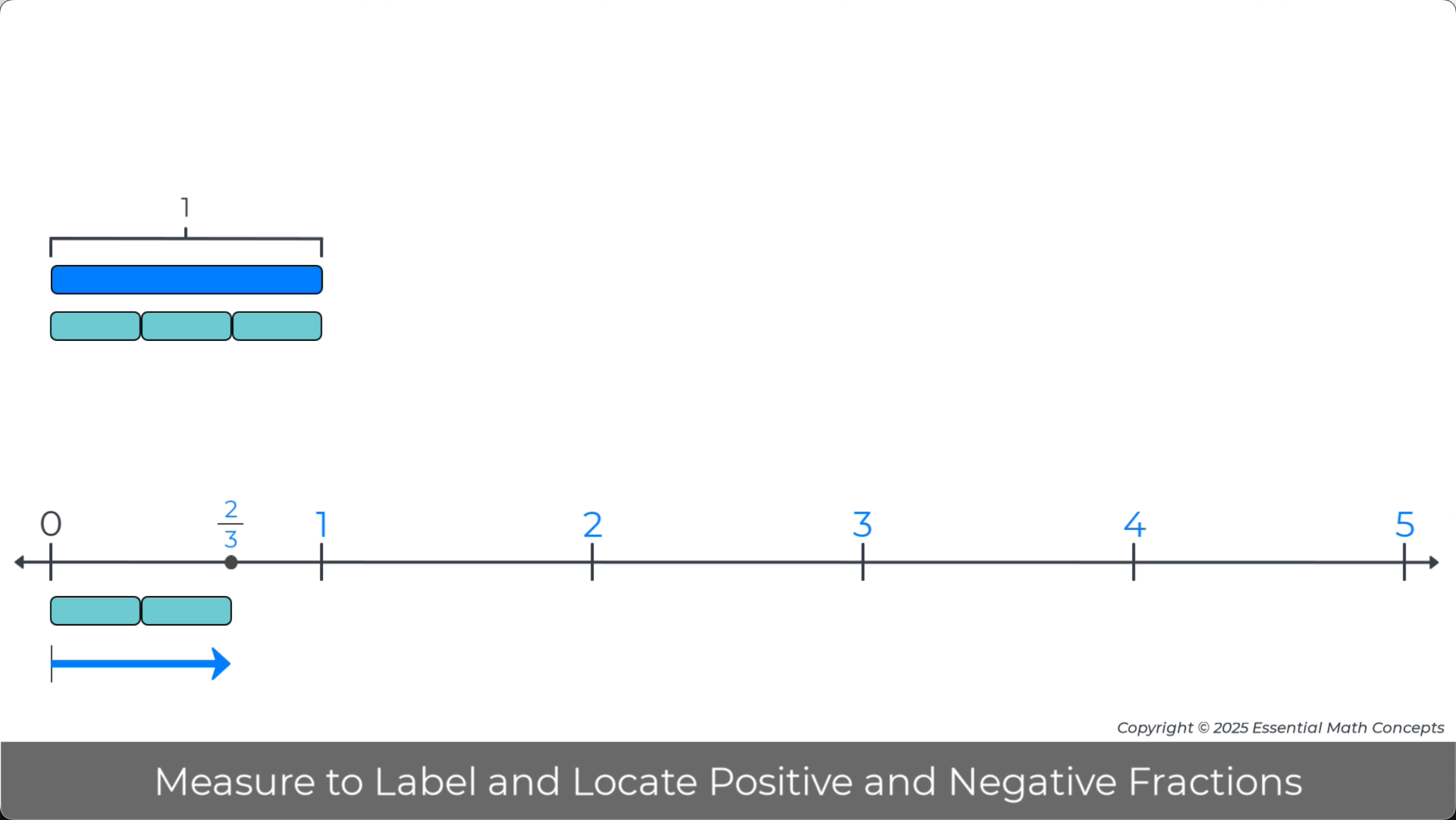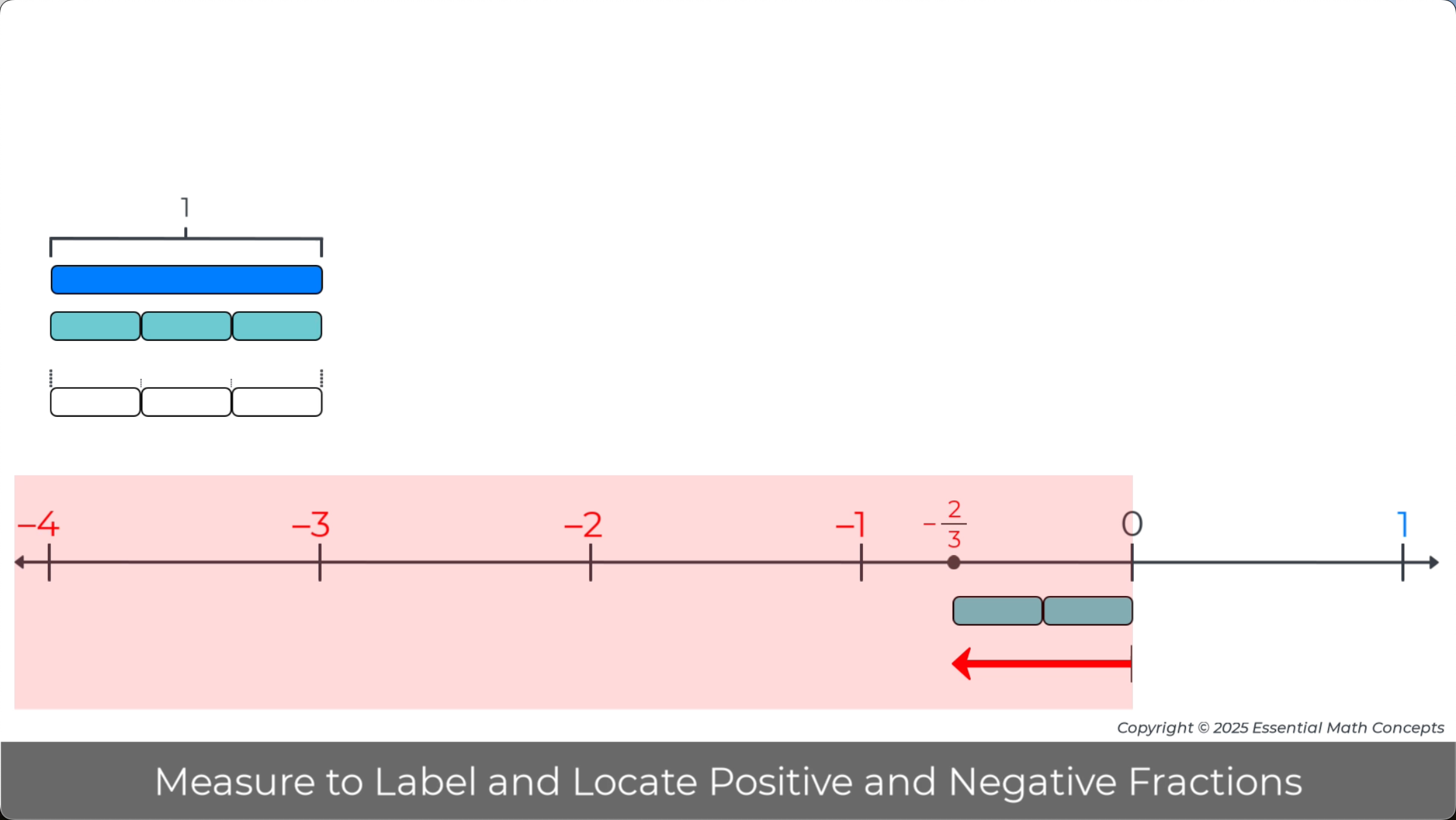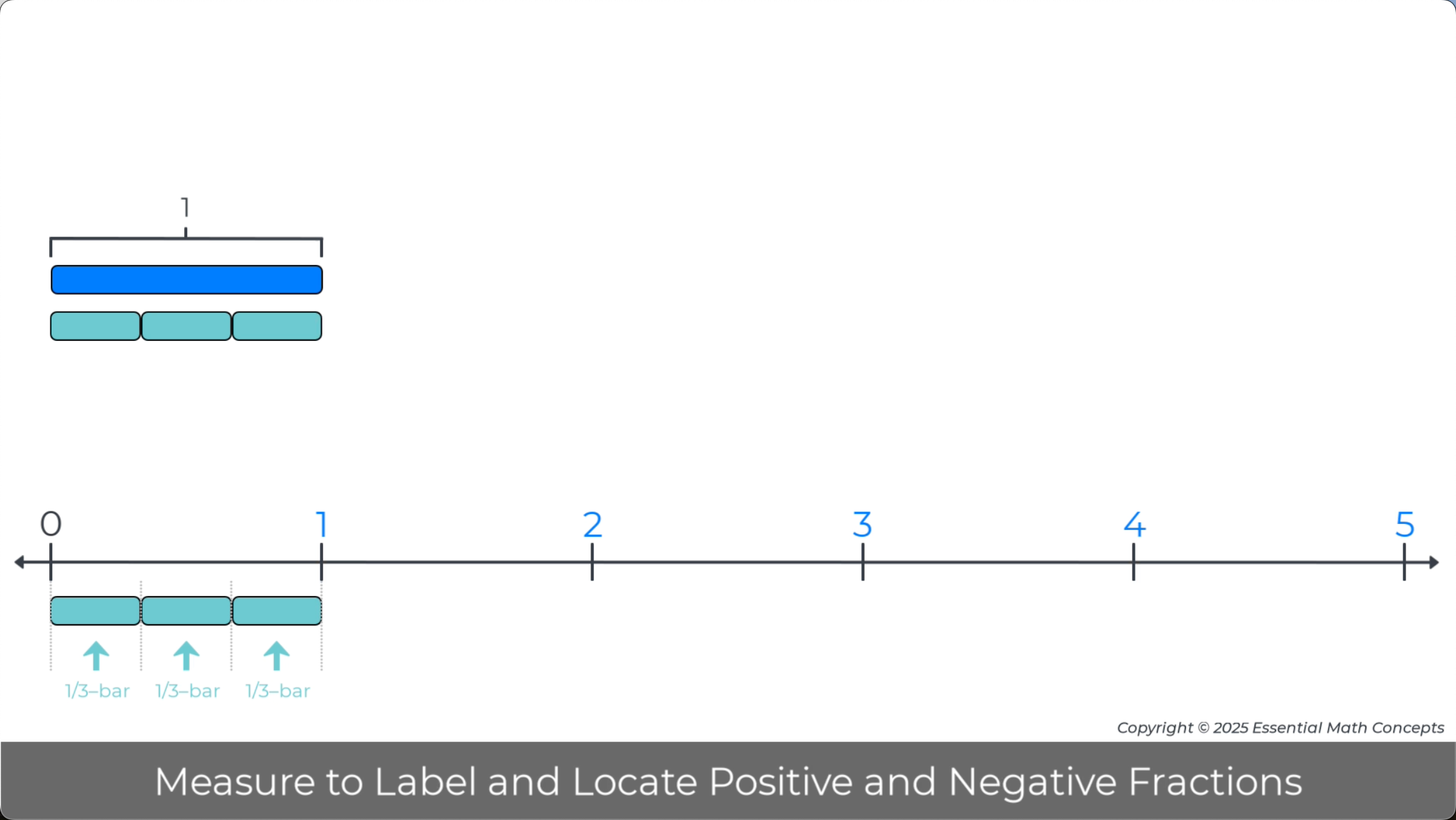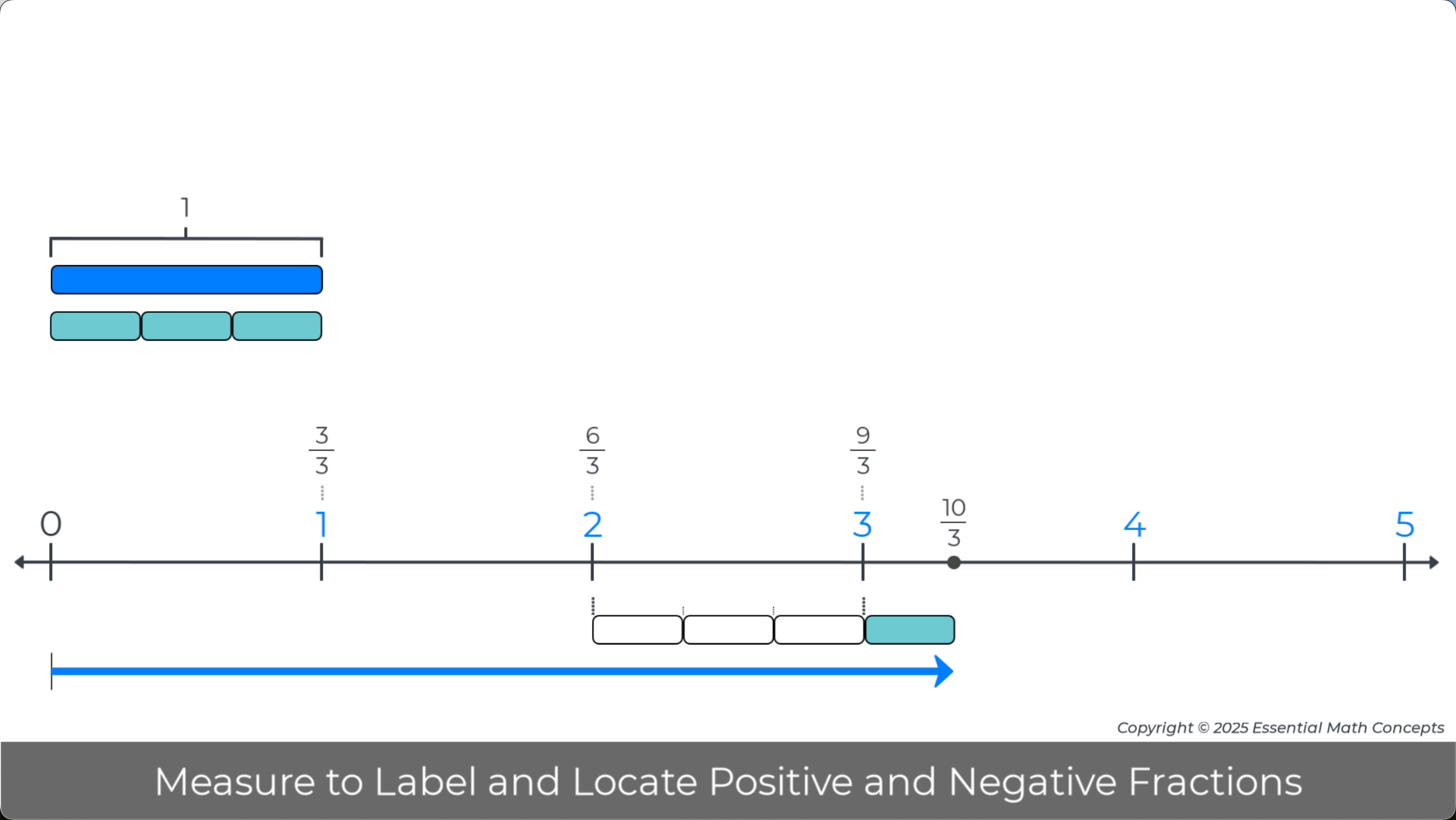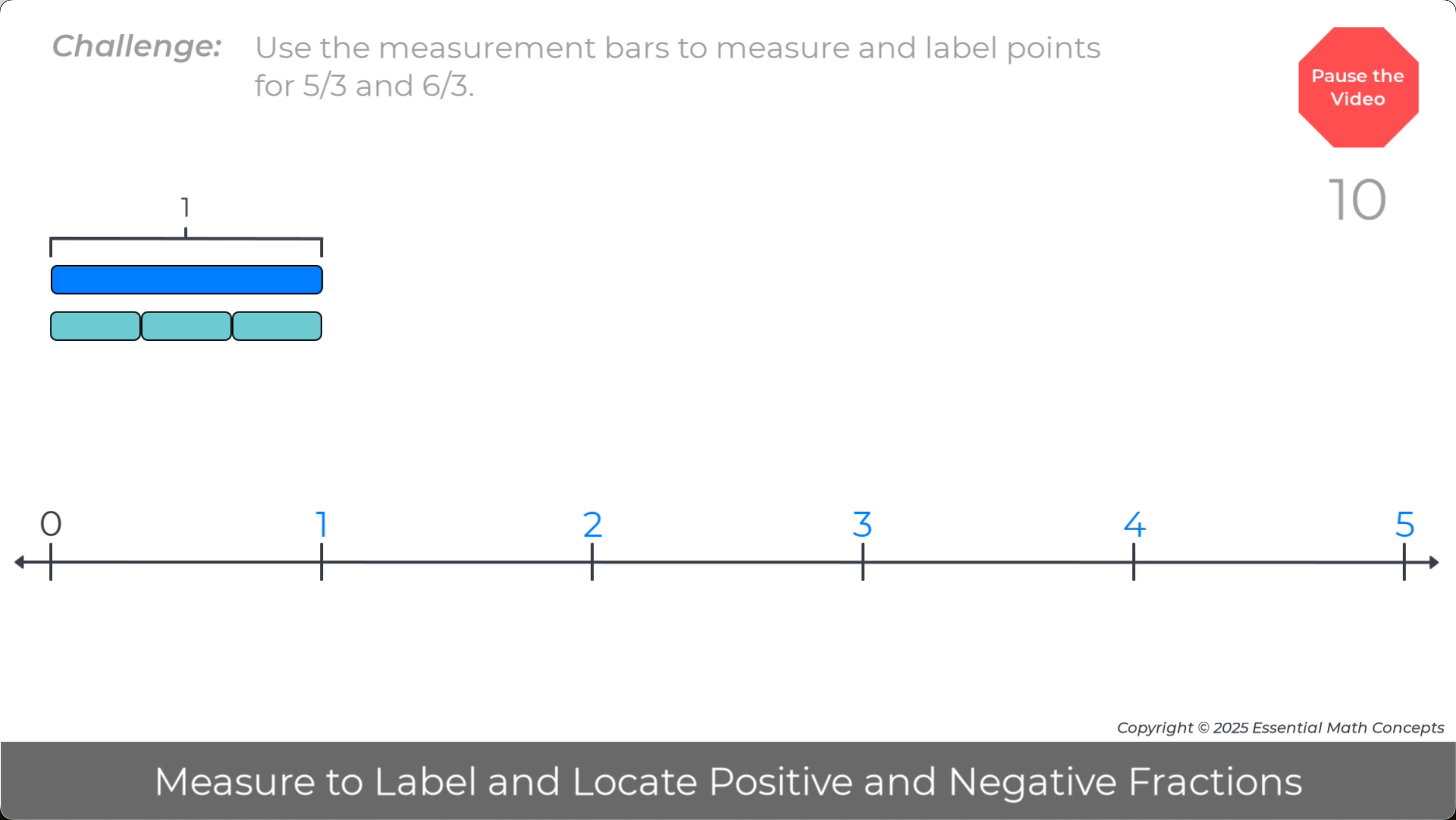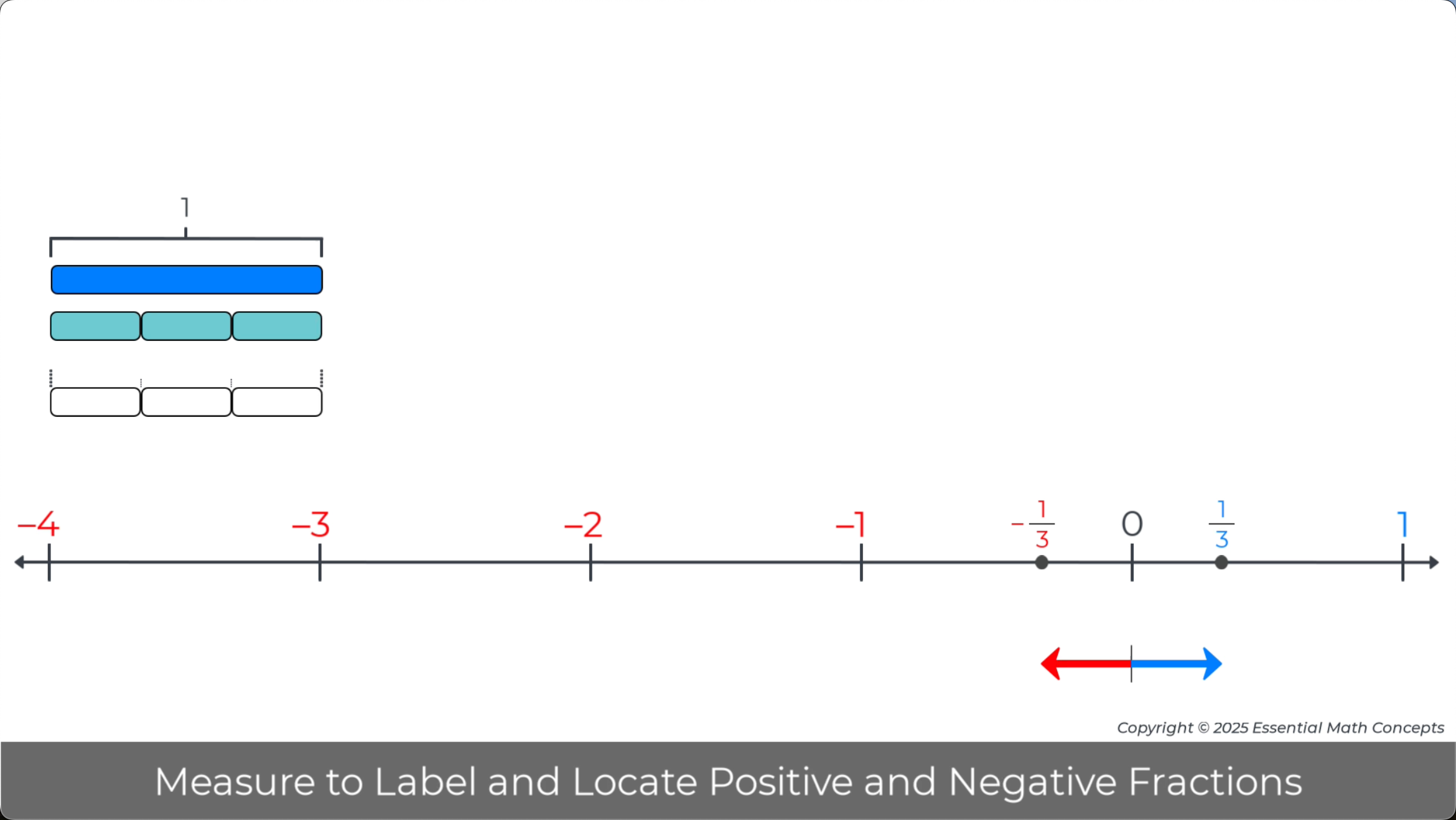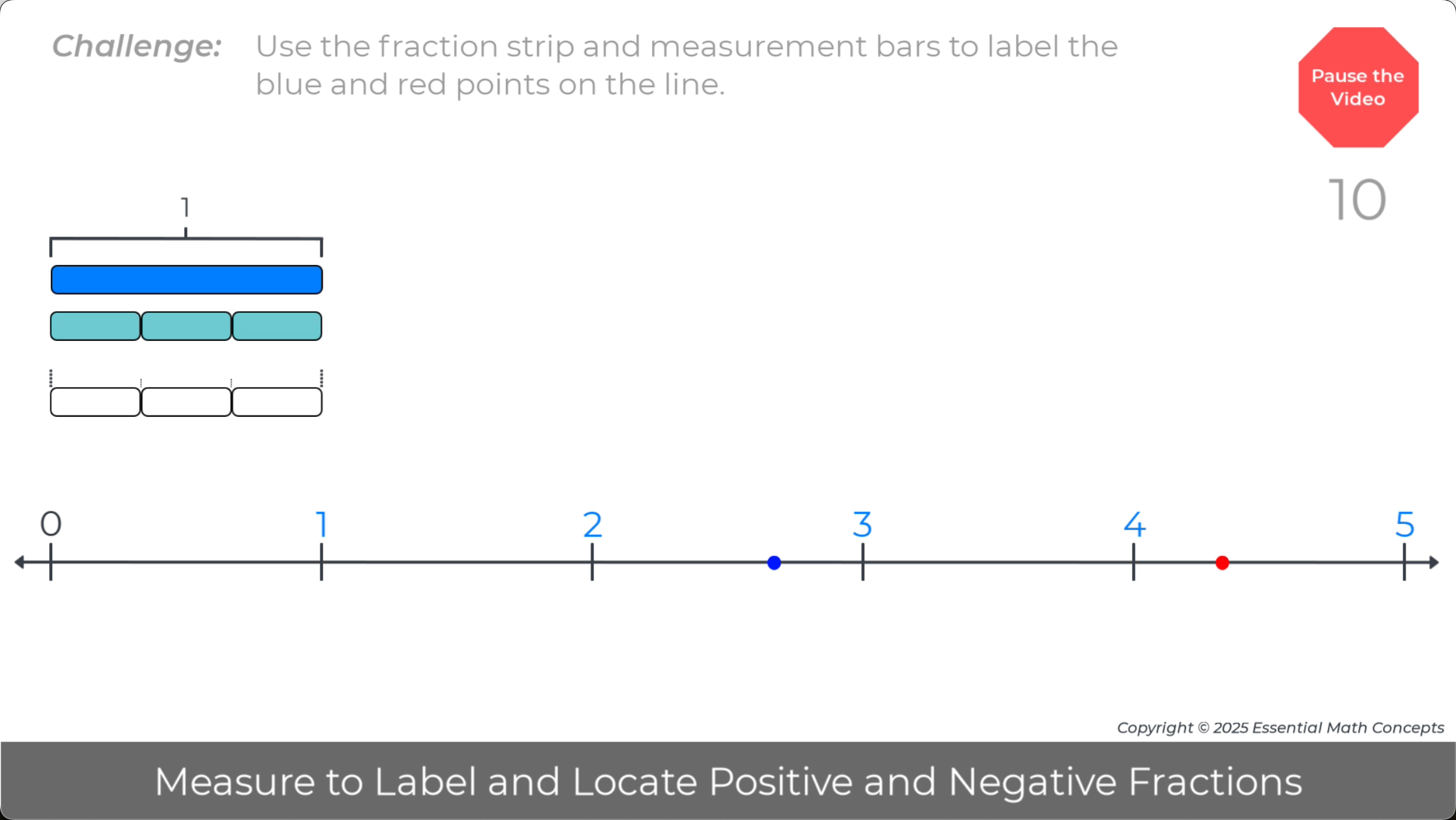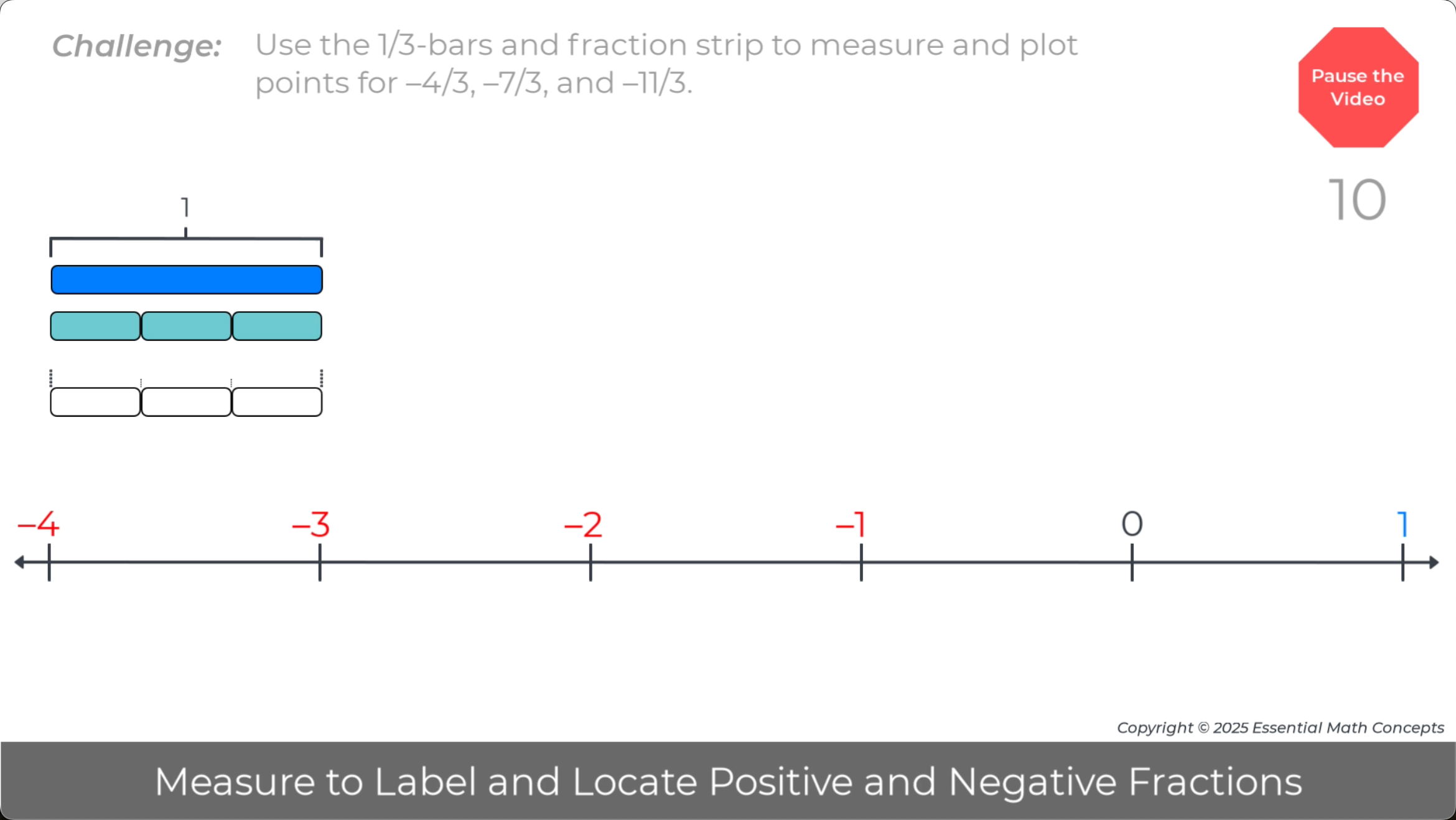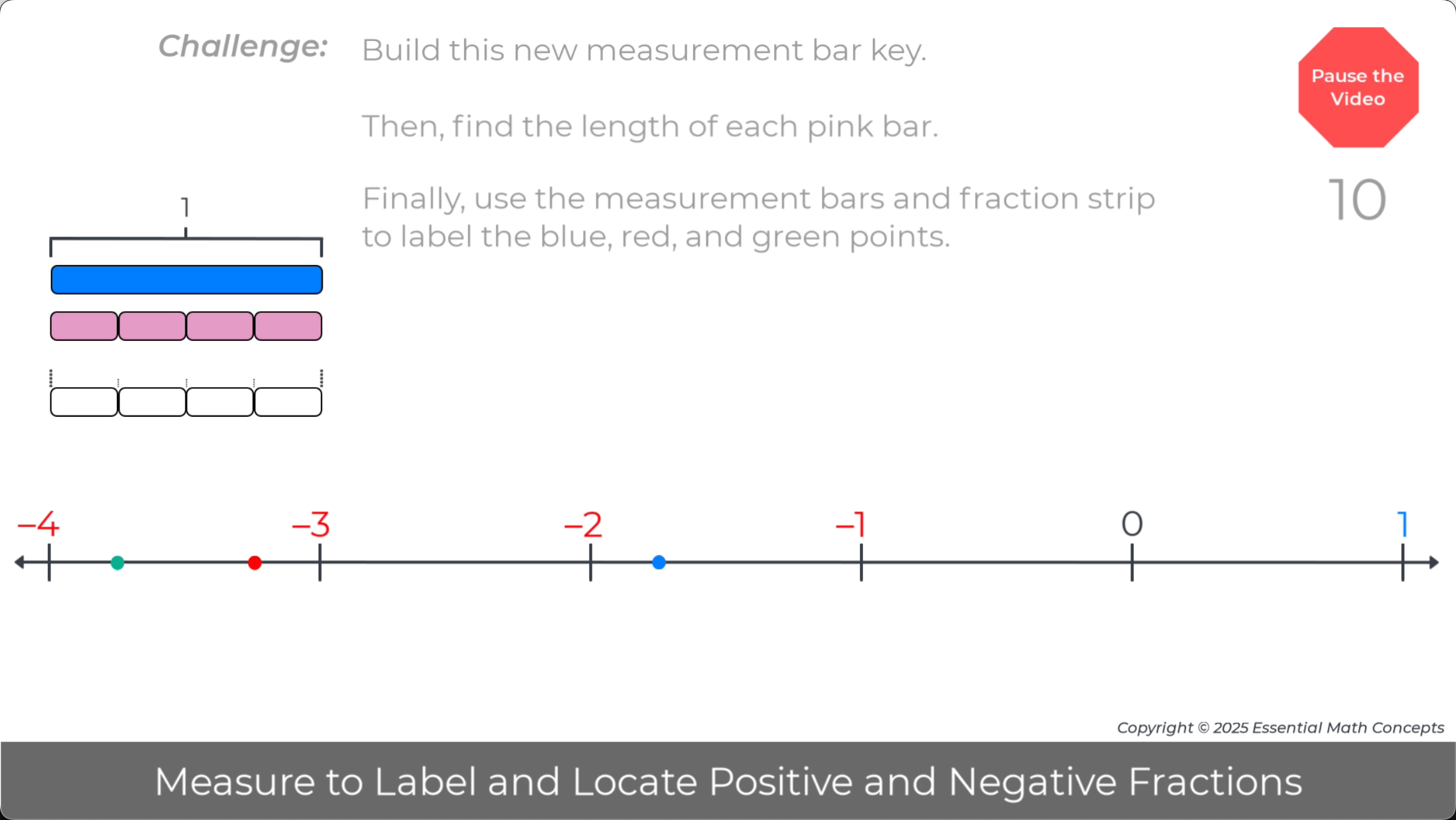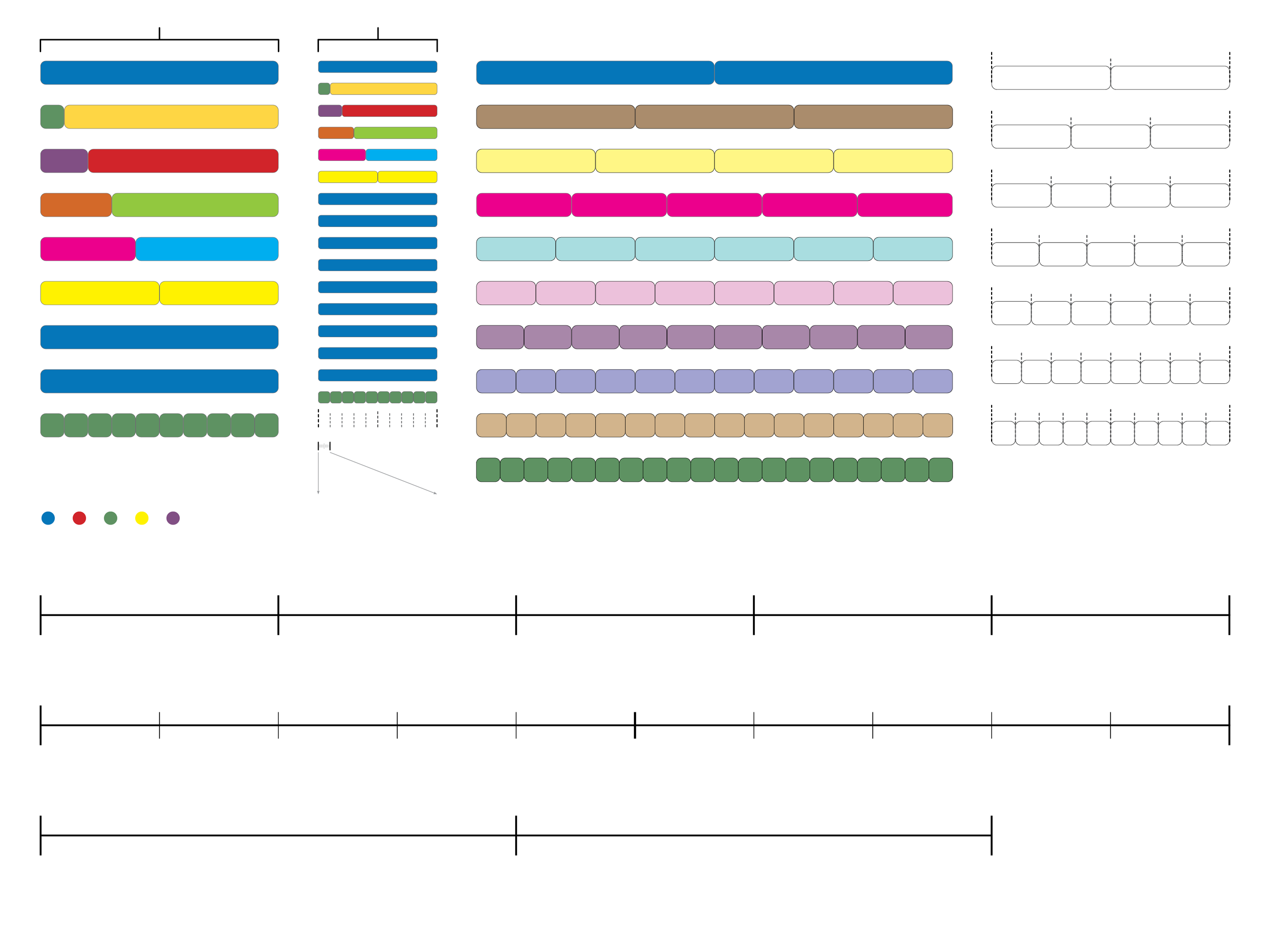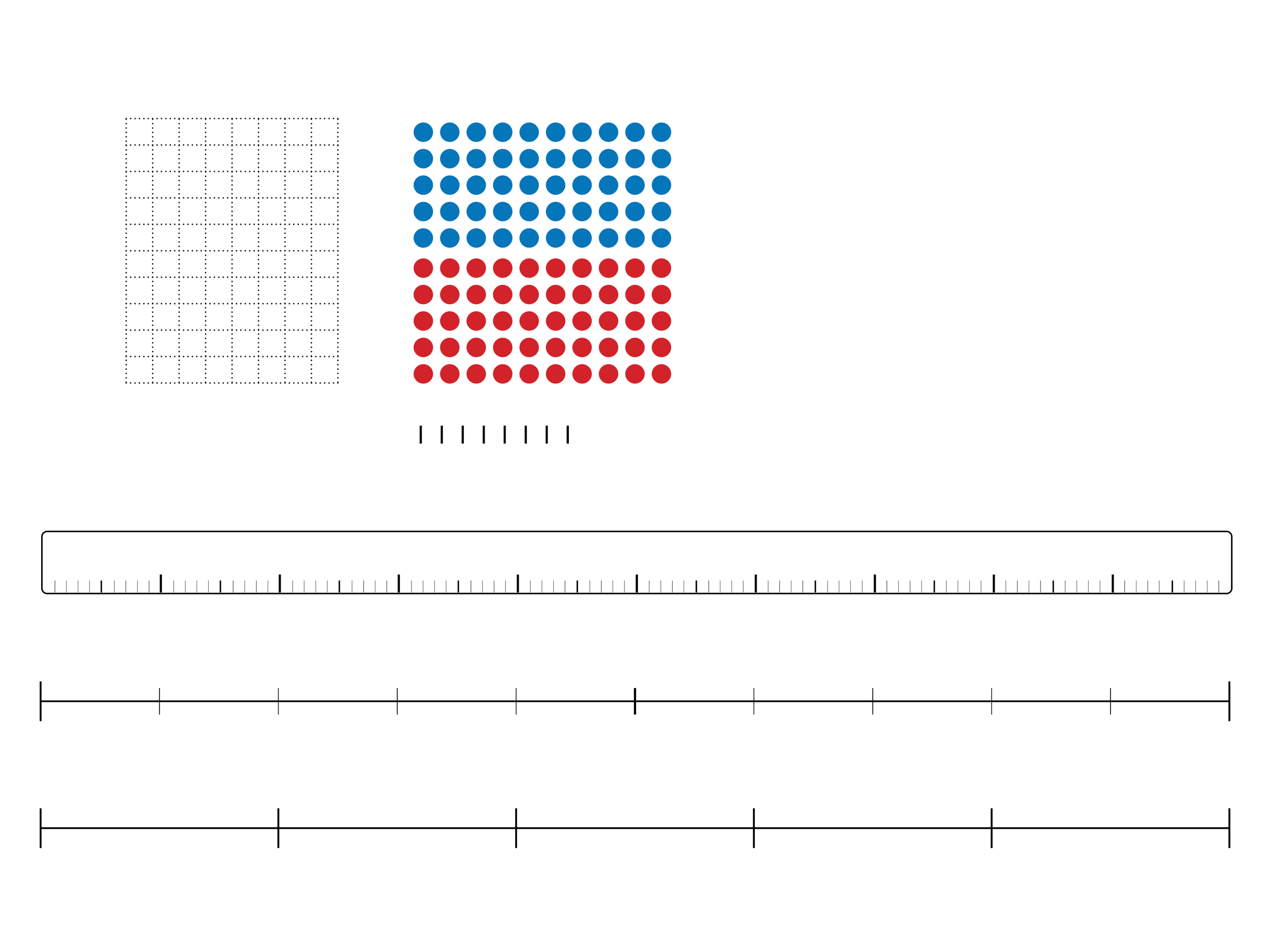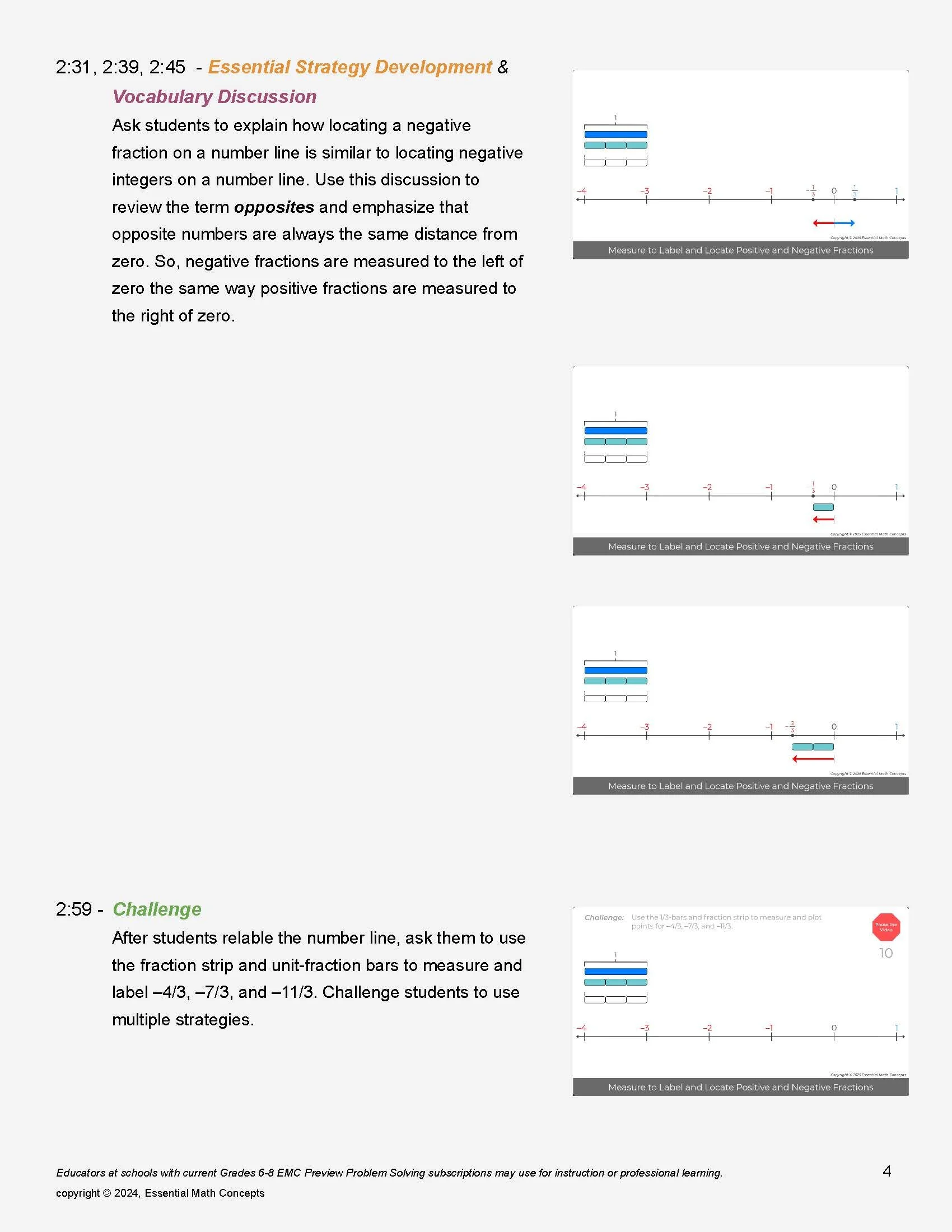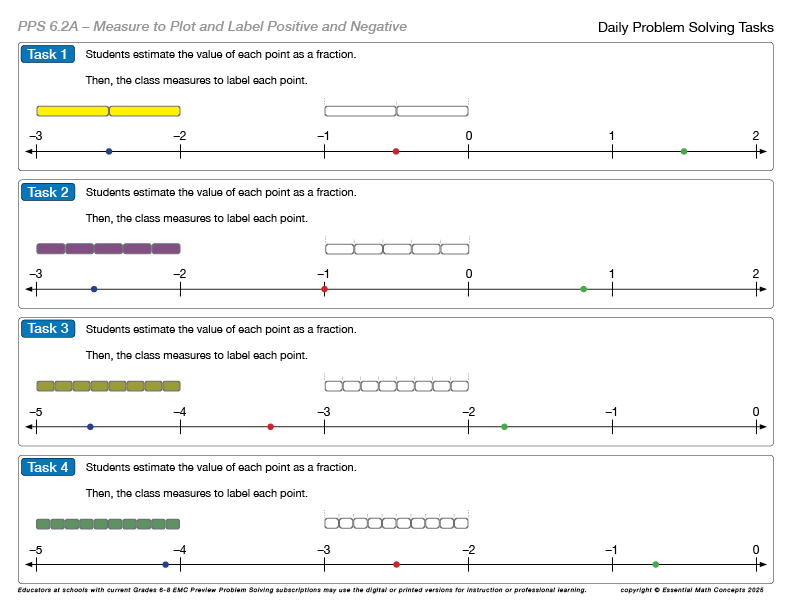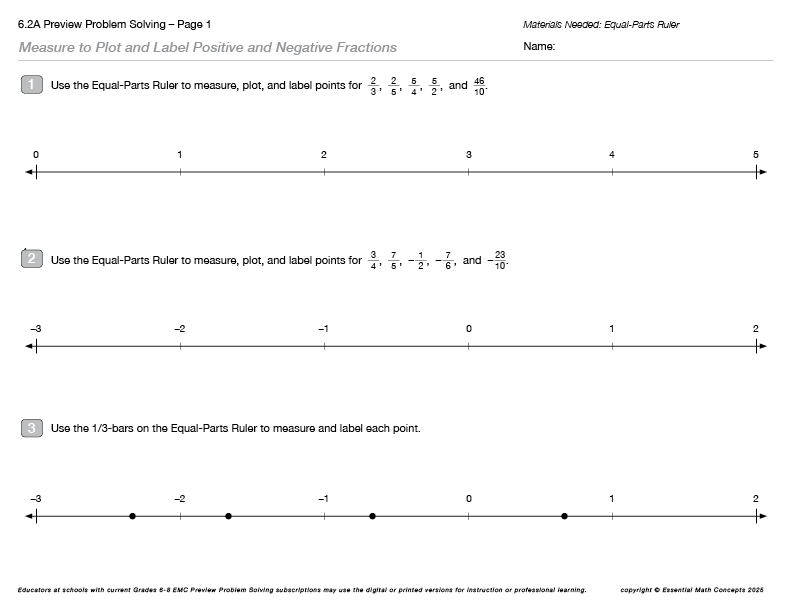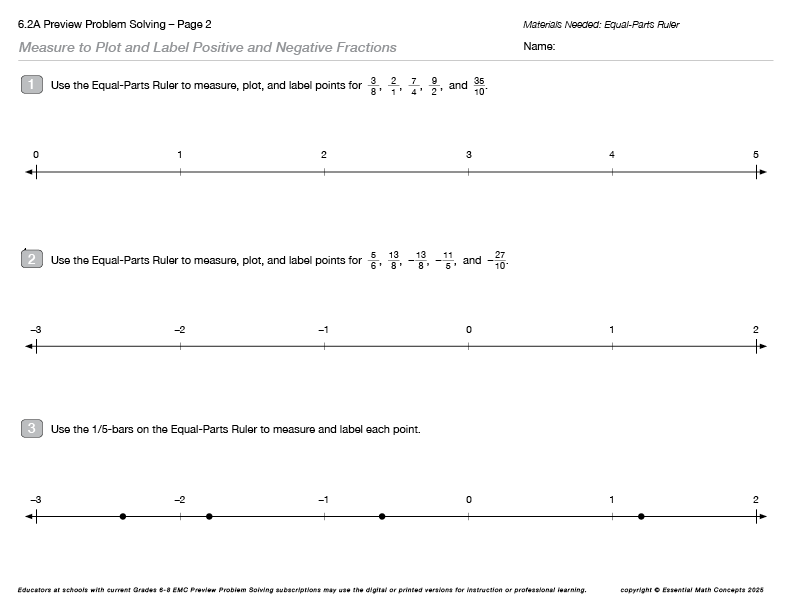Grades 6-8 Problem-Solving Talks
Professional Learning and Instructional Resources for Math Support and Intervention
Problem-Solving Talks Review fraction and decimal strategies and concepts from Grades 3-5.
Then, students apply those strategies and concepts to Preview foundational Grade 6-8 strategies for representing rational numbers and solving proportional problems.
This resource includes:
Conceptual Progression for Problem-Solving Talks
Problem-Solving Talks
Overview of Resources
Overview of Problem-Solving Talk Resources
Problem-Solving Talks are designed to review grades 3-5 concepts involving fractions, decimals, and computation while previewing foundational grade 6-8 representations and strategies for rational numbers, ratios, rates, and percents. These resources help teachers connect review topics, such as locating and labeling fractions and decimals on number lines, directly to essential grade 6 strategies and concepts, such as representing negative rational numbers or identifying equivalent fractions, decimals, and percents on a percent bar.
These resources are built around Problem-Solving Videos that structure a Problem-Solving Talk with a class or small group of students. The video briefly reviews essential representations, strategies, and concepts. Then, the group or class of students completes a set of Problem-Solving Challenges where they build representations and solve problems using a set of magnetic manipulatives on a whiteboard.
The Video Overview and Instructional Notes help teachers focus their questioning strategies and identify pause points in the video to address diagram comprehension, concept development, and vocabulary.
Finally, students apply what they have learned through Daily Problem-Solving Tasks and Practice Problem-Solving Pages.
Problem-Solving Videos
Structure of a Problem-Solving Talk
Sample PS Video — Measure to Plot and Label Positive and Negative Fractions
Problem-Solving Talks review essential concepts from grades 3-5 and preview representations and strategies from grades 6-8.
Problem-Solving Videos structure these talks by reviewing or introducing essential representations or strategies and challenging groups of students to build representations and solve problems.
For example, many students entering middle school have a weak understanding of how measurement is used to locate and label whole numbers, fractions, and decimals on number lines. The sequence of PPS Videos starts with a review of plotting whole numbers, fractions, and decimals on number lines. Then, students apply these strategies to locate and label negative integers, fractions, and decimals.
Resources for Problem-Solving Talks include a magnetic manipulative kit for whiteboards, instructional notes, application tasks, and practice pages.
Problem-Solving Videos Review and Preview essential representations, strategies, and concepts and Challenge a small group or class of students to build representations and solve problems.
Video Pause Points
REVIEW — The length of a unit-fraction bar is defined by the number of equal-length bars that measure a length of 1 on the number line. So, the denominator of a fraction can be idenified as the number of equal length bars that measrue from zero to 1 on a number line.
REVIEW — Unit fraction bars are used to measure to the right of zero to plot and label fractions. With unit fraction bars on number lines, the number of unit fraction bars is the numerator of the fraction.
CHALLENGE — Students in the small group or class are challenged to use the magnetic measurement bars on a whiteboard to measure, plot, and label fractions. This is an opportunity to point out to students that measuring fractions greater than one with unit fraction bars follows the same rules as measuring fractions between 0 and 1.
REVIEW — Two numbers that measure the same distance and direction from zero on a number line are said to be equivalent. This example demonstrates the equivalence of a whole number and a fraction. In subsequent Problem Solving Talks, this concept will be applied to demonstrate equivalent fractions and decimals.
0:17
0:23
0:55
1:19
2:00
2:08
2:33
REVIEW — Students use a fraction strip to skip count by fractions that are equivalent to whole numbers. Then, the add additional unit fractions bars to measure to fractions between whole numbers.
2:47
3:00
CHALLENGE — Students use magnetic fraction strips and measurement bars to label existing points on a number line.
PREVIEW — Unit fraction bars measure to negative fractions to the left of zero using the same use rules as measuring positive fractions to the right of zero.
CHALLENGE — Students use magnetic fraction strips and measurement bars to measure, plot, and label negative fractions to the left of zero.
3:25
PREVIEW — Negative fractions are introduced as the reflection of a positive fraction across zero.
CHALLENGE — Students identify the length of a new set of unit fraction bars. Then, they use fraction strips and unit fraction bars to label existing points that represent negative fractions.
Magnetic Whiteboard Manipulative Kit
Challenge Students to Build Representations and Solve Problems
Each Number Line Talk has a series of Challenges where students in a small group or class use magnetic whiteboard manipulatives to represent rational numbers on number lines or solve ratio, rate, and percent problems.
Magnetic Number Line Segments, Measurement Bars, and Fraction Strips
Drawn to scale on a 48 in by 36 in magnetic whiteboard.
Magnetic Grid and Chips, Double Number Lines, and Percent Bars
Drawn to scale on a 48 in by 36 in magnetic whiteboard.
The Video Overview and Instructional Notes outline the conceptual highlights of the Problem-Solving Videos and list the essential strategies and concepts that are introduced and reviewed. In addition, video pause points with instructional notes identify important representations, strategies, and concepts and offer suggestions for facilitating discussions and problem-solving with students.
The instructional notes offer questioning strategies for each Problem-Solving Challenge and identify other pause points with notes on:
Diagram Comprehension
Essential Concept Development
Vocabulary Discussion
Problem-Solving
Video Overview and Instructional Notes
Develop and Refine Questioning Strategies
REVIEW Pause Points
The first three pages of this VOIN review the basics for measuring to locate and label fractions on number lines.
Identify unit fractions bars
Measure to fractions less than and greater than one.
Identify equivalent fractions and whole numbers that measure from zero to the same point on the line.
PREVIEW Pause Points
The Preview pause points on this page challenge students to apply the measurement strategies to plot and label negative fractions to the left of zero.
The mirror image of a positive fraction across zero is the opposite negative fraction.
Negative fractions measure a distance to the left of zero, where measurement bars represent distance and the arrows (or vectors) represent both distance and direction from zero.
Then, students are Challenged to use magnetic measurement bars and fraction strips to locate and label negative fractions on a whiteboard number line.

